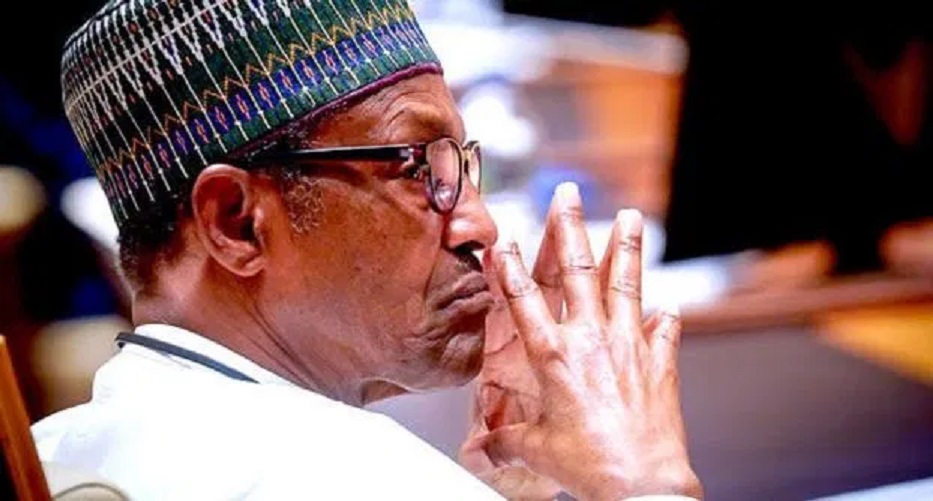DECONGESTION OF CORRECTIONAL CENTRES: BETWEEN PRESIDENT BUHARI AND STATES GOVERNORS

President Buhari has granted Amnesty to 2,600 inmates of Custodial Centres across Nigeria to prevent coronavirus pandemic in correctional centres. Minister of Interior, Rauf Aregbesola delivered a speech titled ”Compassion is the Basis of all Morality.” The welfare of all Nigerians has been the utmost concern and a major policy thrust of the administration of President Buhari since inception. We must thank President Buhari for graciously approving the recommendations of the Presidential Task Force on Custodial Decongestion on the outbreak of coronavirus.
Those qualified for the amnesty are:
1 Inmates that are 60yrs and above
2 Those suffering ill-health that are likely to terminate in death
3 Convicts serving 3yrs and have less than 6mnths to serve
4 Inmates with mental issues
5 Inmates with options of fine not exceeding N50,000.
Also, President Buhari pardoned the following ex-convict who were recommended for pardon:
1. Late Prof. Ambrose Ali
2. Late Chief Anthony Enahoro
3. Ex Lt. Col. Moses Effiong
4. Major E.J Olare and;
5. Ajayi Olusola Babalola
The Amnesty will not apply to inmates sentenced for violent extreme offences such as terrorism, kidnapping, armed banditry, rape, human trafficking, culpable homicide and so on. Kindly note that 70 inmates who qualified for the pardon and amnesty were released today in the FCT. We call on governors of the other 36 states under whose jurisdiction many of the 2,600 inmates were incarcerated to complete the exercise in line with our federal principle.
The Attorney-General of the Federation and Minister of Justice, Abubakar Malami, has written to governors of all the 36 states of the country drawing their attention to President Muhamamdu Buhari’s approval and authorization for urgent measures to be taken towards the speedy decongestion of correctional/custodial centres in the country In view of the Coronavirus (COVID – 19) pandemic. Titled “urgent need for speedy decongestion of custodial centres” and dated April 9th 2020, the minister said available records indicated that the inmate population at the various custodial centres across the country presently stood at 74,127 out of which 52,226 inmates were awaiting trial persons (ATPs). He said most of the centres were housing inmates beyond their capacities. He urged urgent steps to bring the situation under control.
President Buhari has requested all Executive Governors to request their State Chief Judges to embark on visits to all correctional/custodial centres within their respective States to identify and release deserving inmates where that has not been done already,” the letter reads in part. The Attorney-General explained that at the requested visit, the chief judges were enjoined to consider conditional or unconditional release of ATPs who had spent 6 years or more in custody.
The powers of the CJN and CJs to release persons remanded in prisons custody is provided for in our laws. By virtue of Section 11 of Prisons Act (Cap 29) LFN, 2004, the CJs and the CJN are categorized among Prison Visitors ex-officio. The section provides:
11. (1) The following shall be prison visitors ex officio-
(a) in relation to all prisons, the Chief Justice of Nigeria and the other Justices of the Supreme Court; and
(b) in relation to prisons in their areas of jurisdiction- (i) the President (however styled) and the other Justices of the Court of Appeal; (ii) the Chief Judge and other Judges of the Federal High Court; (iii) the Chief Judge and other Judges of the High Court of each State; (iv) the Grand Kadi, the Acting Grand Kadi and other Judges of the Sharia Court of Appeal exercising jurisdiction in a State; (v) magistrates, district judges, alkali and presidents of area courts; and (vi) justices of the peace.
While the Chief Justice and Chief Judges are empowered by Section 1 of Criminal Justice (Release from Custody) Special Provisions Act, Cap 79, 1990 hereinafter called (CJRCSP ACT) to order the release of any person, if they are satisfied that the detention of that person is manifestly unlawful or where the person has been detained for period longer than the maximum period of imprisonment for the alleged offence. The Section provides:
1. (1) Where, in respect of any person detained in any prison in Nigeria, not being a person detained in execution of a sentence of a court or tribunal duly constituted by law, the Chief Justice of Nigeria or the Chief Judge of a State is satisfied that the-
(a) detention of that person is manifestly unlawful; or
(b) person detained has been in custody, whether on remand or otherwise, for a period longer than the maximum period of imprisonment which the person detained could have served had he been convicted of the offence in respect of which he was detained,
the Chief Justice or the Chief Judge may issue an order of release to the officer in charge of the prison and such officer shall on receipt of the order release the person named therein.
The beauty of the above provision is that the draftsmen with the clear intention of ensuring that the implementation does not offend the provisions of Section 175 and 212 of 1999 Constitution which conferred power only on the President and Governors respectively to grant pardon used the word “Release”.
The implication of the provision of Section 1(1) CJRCSP ACT is that the CJN and CJs can only exercise the power of release over persons that are not serving any sentence of court to enable them attend trial from outside the prison custody. The legal effect of the exercise of this power includes
According to the minister, other inmates to be considered include the aged, those with terminal illness, low risk offenders, those with no sufficient legal basis to remain in custody, convicts of minor offences with or without option of fines and those who have less than 3 years term left to serve having served a substantial term of their jail term for offences that attract 5 years and above.
Malami also demanded that “payment of fines may be made in favour of inmates convicted of lesser offences with option of fine, who are in
custody because of their inability to pay such fines”. The minister informed the governors that President Buhari had approved that “State Governors should at this stage, take measures to facilitate the setting of their respective State Prerogative of Mercy Committees in order to recommend deserving cases for release on grounds of pardon or clemency in line with Constitutional provisions”.
I must blame the menace of correctional centres congestion on the nature of criminal justice system in Nigeria despite the fact there is limited funding. Criminal justice system encompasses all the paraphernalia of justice system in Nigeria; ranging from police, court, correctional centres and other law enforcement agencies. Investigation takes about weeks or months to conclude and when a matter is concluded on investigation and brought to court for trial, if charges are not filed against them in a court of competent jurisdiction you see there will be delay. Minister of Interior is working round the clock on increase funding by at least 10% to help meet growing demand of correctional centres.
Frankly, the issue of correctional centres congestion is worrisome. I believe that a starting point is the Minister of Interior, Rauf Aregbesola is working on devolution of powers between the federal government and the states. When this is done, the states would be in a better stand to offer their best in correctional centres development and this could help by way of better funding management and funding of the correctional centres.
The other factor is the slow pace of justice dispensation in the country which is attributable to long and, sometimes, mischievous adjournment of cases which has led to non-dispensation of most cases thereby abandoning the inmates in prisons, inadequate funding of the judiciary, slow investigation process by the police. Unfortunately, due to the inherent lapses in the system, the correctional centres system which is supposed to be reformatory has eventually turned to punitive, thereby defeating the true essence of sending convicts to prisons. The implication of this reversed system of prison administration is that the inmates of our correctional centres come out more criminally minded than they were before conviction.
Also, the constitutional duties of the Chief Judges to visit prisons should be consistently complied with. This power vested in the Chief Judges to visit and release inmates with offences or those that have over-spent their prison terms and are still there, would help to drastically decongest the prisons.
Similarly, there is the institutionalized way of delaying trials in the justice delivery system by way of holding charge. Time has come for the nation to do away with such stop-gaps. Of equal importance is the upward review of funding of the Judiciary and the right Judiciary personnel to do the job. With adequate funding, the prison authorities would be able to bring inmates to and from the courts to the prisons. In the present situation, there are instances where the courts cannot sit because there are no vehicles to transport them to the courts.
The police also should be given the wherewithal to perform their constitutional role in justice dispensation. It is our candid view that when these are done, the justice delivery system would improve and this, in turn, would help to decongest our prisons for a saner society.
Inwalomhe Donald writes via inwalomhe.donald@yahoo.com
![]()



